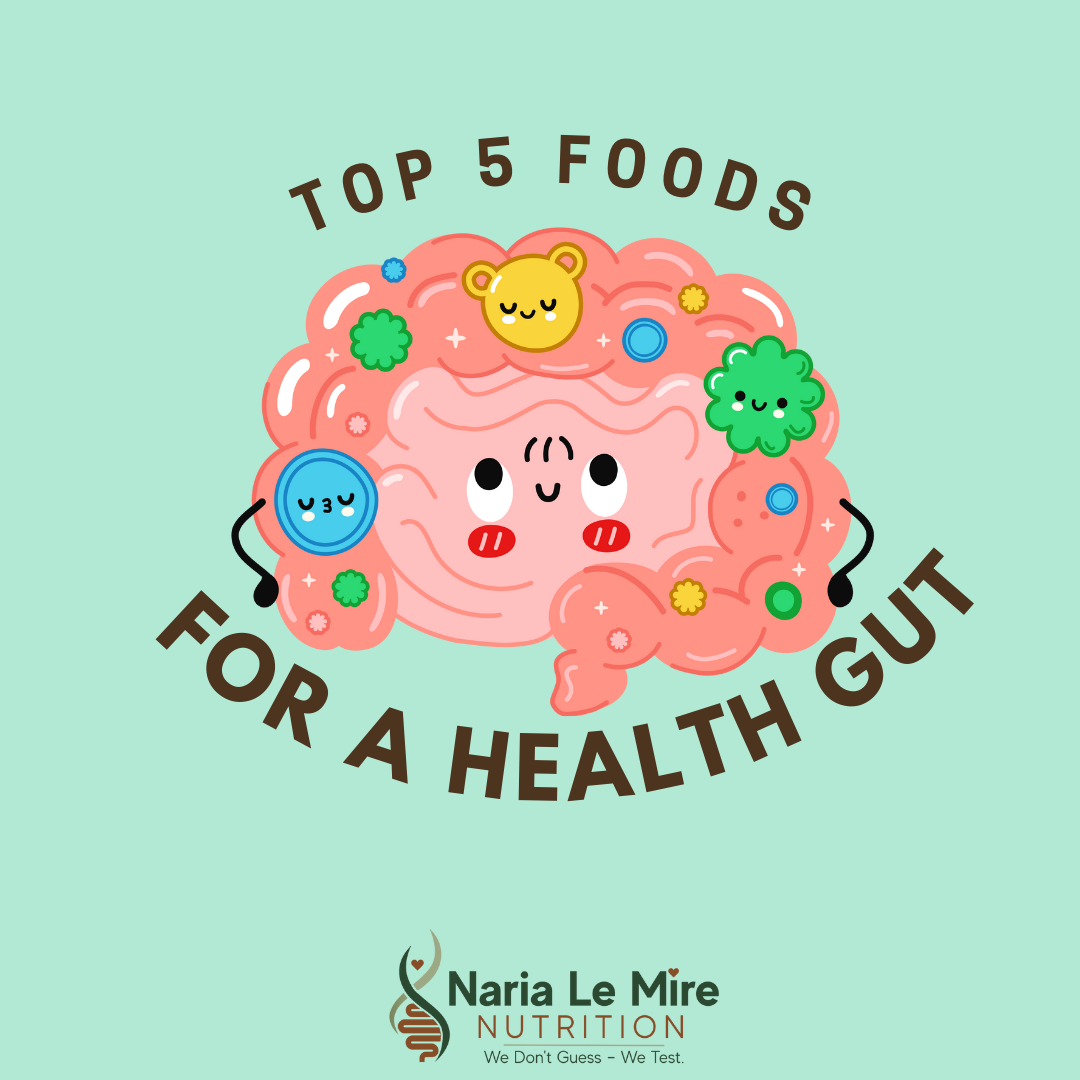As we approach the new year, we can often find ourselves looking at how we want to pursue 2024 and what health goals we want to prioritize. Well, one of the top trends is gut health and for good reason! The bacteria we have in our gut will determine how you feel during your day to day life. They will also determine how you digest food and what postbioitcs your body is able to procure.
Did you know that a well-functioning and diverse gut is not only essential for digestion and chronic disease prevention but also plays a crucial role in overall health and aging?In this blog post, we will explore the top 5 foods that support a healthy gut and delve into why maintaining good gut health is a key factor in healthy aging.
So lets get right to it!
1. Bone broth
Many times my clients will ome to me and explain how they’ve tried probiotics via pills but did not experience any benefits with their digestive health including bowel movements. But sometimes we have to consdier different approaches. One of my favorites as a gut health registered dietitian nutritionist in bone broth. Did you know that bone broth is a rich source of collagen, gelatin, and amino acids that support gut integrity! This is important becuase we want a strong gut lining to prevent “leaking” and yes, inflammation!
A healthy gut lining is crucial for nutrient absorption and protecting against harmful substances that may enter the bloodstream. If you haven’t check out my recent Youtube episode on leaky gut, make sure to check it out here! In this episode i explain how we want a strong barrier, make sure to review and comment with questions.
I typically recommend to include bone broth daily, about 8 ounces each day. I personally like to have mine in the morning especailly during cold months. Remember, drinking bone broth will also aid with hydration which is important to prevent constipation, flare ups from diverticulosis, and hemmrhoids. Looking for fun ways to include bone broth, check out these fun videos! The first include high protein rice using bone broth, click here. The second, is high protein ramen, click here!
2. Fatty fish and omega 3- fatty acids
Do you like fatty fish? If not, it’s okay!
Did you know that you can find omega- 3 fatty acids in foods such as: mackerel, salmon, chia seeds, nuts/seeds, cod liver oil, and omega 3 enriched eggs. Don’t like these foods? Try a day to day capsule to ease. Many of my clients don’t enjoy these foods and prefer to supplememnts. Others who are starting to encorporate omega-3 foods may decide to supplement while increasing their intake. Both are okay!
Omega 3 fatty acids also help with the gut lining and therefore can prevent inflammation by the compounds they create such as short chain fatty acids like butyrate. For those experiencing irritable bowel disease (IBD), leaky gut or Celiac disease may benefit from omega 3! This article reviews a few gut health benefits of omega 3. Make sure to review and let me know your thoughts!
Remember, chornic inflammation is the problem.
Personally, I like to consume omega 3 with foods and my favorites as a gut health registered dietitian nutritionist is salmon and sardines! Even though those around me may not enjoy the smell of sardines, my gut loves it! 😉
3. Fiber
If you’re my client you knew this one was coming and to be honest I wanted to start with it, but I held off!
Fiber is absolutely my favorite. Why?
Remember, fiber is a prebiotic and prebioitcs are the food for out gut bacteria.
If you’re not consume adequate fiber, you are not feeding your bacteria and they will be forced to consume products that will not nourish them to help create those beneficial postbiotics like vitamins. Adequate fiber intake supports regular bowel movements, preventing constipation and flare ups from diverticulosis. Most individuals with diverticulosis can continue life without falre ups if they consume adequate fiber and water each day. And of course don’t forget about physical activity!
I recommend consuming fiber mainly from fruits, vegetables and legumes. Whole grains in moderation. Most individuals are not consuming enough fiber. Simply remember, women need about 30 grams a day and men 40 grams a day. Most people consume under 15 grams a day.
If you’re taking a probiotic and expect magic without consuming the “food” aka fiber they need, you’re not creating an enviroment in your gut for the bacteria to flourish.
If you haven’t check out this episode on fiber, click here to check it out! Here I talk all about why fiber is important so make sure to review and comment with questions!
4. Fermented foods
One of the top questions I get asked as a registered dietitian nutritionist is “Do I need to take a probiotic if I consume fermented foods?”
The answer is, no.
Remember, the goal will always be to get our nutrition with foods. However at times we may find it extremelly difficult to consume these foods on a daily basis or we may forget to purhcase them. Either way, having a probiotic may benefit most when taking the right probiotic. Yes, this means, taking a probiotic can cause more harm than good. This is a massive reason why we work closely with our clients and their stool test results using biome FX to review the approach probiotic plan for them. Make sure to review our quick short on our favorite probiotics here!
You can find probiotics naturally in foods like kefir, kombhucha, miso, sourdough, kimchi (love this!), and yogurt. Adding these foods to your day to day can be simple after you’ve learned a simple route! For example, I’ve learned for myself that consuming kimchi for lunch or dinner is simple if I always have it on hard, i just place about 2 tablespoons on at least one meal a day. I also love to have kefir with my breakfast for ease. This way, by the time dinner comes around, I’ve usually had to rounds of fermented foods aka probiotics with real food!
How does fermented foods help the gut? Well, they have bacteria that can benefit the balance of bacteria in the gut and support optimal digestion and nutrient absorption. Remember, the end game are the postbiotics which is what the bacteria produce.
5. Polyphenols
Polyphenols are a diverse group of naturally occurring compounds found in plants. They have been widely recognized for their health-promoting properties, and their positive impact on gut health is significant. See how we come back to fiber containing foods? It’s all conencted friend!
Polyphenols influence the composition and activity of the gut microbiota and serve as prebiotics, promoting the growth of beneficial bacteria in the gut. They can also inhibit the growth of harmful bacteria and pathogens in the gut, promoting a healthier balance between beneficial and pathogenic microorganisms. My favorite polyphenols foods include berries (I have them most mornings), brocolli, onions, walnuts (have them most days), chia seeds, barley, lentils, spices such as turmeric and rosemary, black tea, and dark chocolate (aim for over 65% cocoa).
Include these in your day to day as well. Look for products you can easily add and enjoy to ensure a sustainable approach to gut health.
Our mission
Our goal is to heal our clients from the inside out and we know that focusing on a healthy gut will translate into a healtjhy aging process. By incorporating these top 5 foods into our diet, we can nourish our gut, support a balanced microbiome, and enjoy the benefits of overall health and vitality as we age. Remember, a healthy gut is not just about what you eat but also about creating a lifestyle that promotes well-being from within.
This year, we are looking to help more people heal their gut and experience a different life! Looking to improve your gut health in 2024 with a registered dietitian nutritionist?
Click here to schedule a free discovery call with us today!




